Javier Fernandez (he encourages students & families to call him Javi) joined Common Ground’s team this summer as our Manager for Student Engagement & Out of School Programs. Javi hit the ground running – helping to build community during student orientation, organizing our first family events of the year, launching our fall after-school programs. This week, Javi sat down with Education Change Interns Jayden Carty, Madison Acampora, Sarah Reynolds, and Ronald McCauley. We’re excited to introduce him to the Common Ground community!
 What’s your job at Common Ground? What can students rely on you for?
What’s your job at Common Ground? What can students rely on you for?
My job is to be the Manager of Student Engagement and Out of School Programs. But my responsibility here is to be a positive light, expose our students to things they haven’t been exposed to in the past, and also be a relatable person on campus. I am Puerto Rican and Dominican. I remember what it was like being in high school, not having people who looked like me, spoke like me, walked like me, trying to educate me. So, regardless of my role, my intention is to be a person of value, and a resource to our campus.
In my role as After-School Program Manager, I want to think outside the box. One thing we are incorporating is a new debate club, which will be led by two students from Quinnipiac Law. That debate club can turn into a mock trial club in the next semester, if that’s what students want. I’m also incorporating an investment/foreign exchange enrichment program. You’ll be learning strategies that banks use to multiply our money, investing in markets. After you graduate high school, you can use that as a way to generate income. Who doesn’t want to make money?
What path brought you to Common Ground?
I had a very unorthodox path to the educational realm. I graduated with a degree in economics, and a minor in business management with innovation, which is essentially about thinking outside the box. Right out of college, I worked in insurance – because I had a love for helping people.
In college, I was a youth development specialist, where I helped to create programs and curricula to help high school students garner and grow their life skills. Sometimes budgeting, public speaking, something as simple as cleaning.
In college, I also ended up pledging a fraternity, and through my fraternity I became philanthropic. That’s where I found a passion for helping people.
I’ve always had the desire to work at a school – but didn’t want to be a teacher in a room. Your responsibility as a teacher, and your approach with students, is different than if you are staff, providing resources or opportunities.
Why Common Ground?
I am a city boy, from New York. When I first came to this campus, I noticed right away that it was different. And I like different. What I love is the intention was to provide an unorthodox approach to education. For instance, the farm provides a different kind of an identity to the school, the way it works in conjunction with the school, and provides opportunities to students. I put myself in the shoes of students here, and how I would have appreciated that kind of approach at the time I was 17, 18 years old.
I also like the level of diversity. Students come from all over. We call this place a campus, rather than a school. This structure reminds me more of college life, or of regular life, where you are responsible for what you do and how you do it.
Through the hiring process, I asked questions such as, “What’s the culture like here?” Some things really stood out. The community here can feel like a family. Our students are highly engaged – hence this interview right here. Even in the hiring process, I was interviewed by two students, which blew my mind. To me that was awesome – I knew I was in.
What motivates you to work with young people? What is your style as a youth development professional?
I don’t really believe in motivation, because motivation is external. For example, I may be having a conversation with you, and we are getting riled up. But a day or two later, the excitement dies, because Javi isn’t in the class any more.
So instead, I find myself being inspired. To be honest, what inspires me is this: I was an at risk youth. I was gang affiliated when I was younger. I didn’t have proper guidance, particularly as a male. My mom passed away when I was 12, so I was raised by a village.
What inspires me, is understanding that we as human beings are all different. We are from different walks of life, we speak different languages. We experience the same thing differently. What inspires me is learning to be more relatable, being able to break bread, converse with all sorts of different people. I can speak to someone from a Fortune 500 company, I can have a professional conversation with them, or I can walk into impoverished neighborhoods and speak with people there. The dialect may be different, but the message is the same.
What would you like people to know about you as a person?
I am a family man. I’m 32 years old; I have 4 kids: three girls, one boy, My son is 7, my daughters are 9, 5, and 3.
Basketball is a passion of mine. I’m a Knicks fan; we’re not the greatest of teams, but that’s my team. Basketball is really what kept me out of trouble when I was growing up. It also taught me leadership. When you’re on the court, you’re only as strong as the leader.
If you asked some of the important people in my life about a word that describes me, they would say resilience, the ability to get through whatever you are going through. At times, we all go through a storm. Life gives us ups and downs, ebbs and flows. Most times, when we hit that storm, we stay in the storm. I use the analogy of a storm because, there are times when I am driving in rough weather, and I feel like I can’t see the other side. So imagine you’re in that storm, going along a highway, and cars are pulling over all around you — because it’s difficult. Meanwhile, you keep driving, you get through the storm, and you pull over and you look back … The storm is still there, but so is everyone who stopped in the midst of that. That need to push through is embedded in me.
I have a couple of sayings that you’ll hear me say a lot: Number one, How you do anything is how you do everything. So, if you are lackadaisical in your school, you are going to pick up those habits – it’s unconscious. You will also hear me say, Success doesn’t wait, so why should you? People are sometimes afraid to hop into a realm they haven’t experienced. I have never worked at a school, but I’ve volunteered in them, and am ready to take on new challenges. Because of that, I already feel comfortable here. So I always say, challenge yourself, look to improve yourself. Resiliency is a character trait that, if you decide to embody it, will change your life.
I’m also really into mindset development and training. I never read a book in high school that wasn’t assigned. But in college, I started to feel like the people who I was raised around were still in the same place. They weren’t looking to grow. So I started to read books that I cared about. I started following Erik Thomas, the former football player turned motivational and inspirational speaker. I truly believe that if you have the proper mindset, no one can stop you from doing anything. That sounds crazy, but it only sounds that way because we as humans subconsciously doubt.
What I realized, when I was a child, no one was having those conversations with me. If you prepare your mind, fertilize your mind, it’s easier for you to grasp different concepts, for you to add value. Your income is a direct correlation to the value you provide. There are people out there who make $15,000 an hour as motivational speakers – because of the value they provide.
What I didn’t understand while I was in high school was how to obtain value. I didn’t make the best choices. There were times in high school when I chose not to go to class. That was a terrible choice. Because Applied knowledge is power. How are you going to obtain knowledge if you aren’t in the place where knowledge is given?
Say more about what you were like in high school.
I was not responsible. I went to class, but I didn’t go responsibly. There were times when I was unprepared. I had my bookbag, but sometimes there was nothing in it. I took passes to go places I didn’t need to go. I often laugh, because the things we see here, we have done or experienced ourselves. The things that happen at Common Ground are not uncommon in schools everywhere.
I am not proud of this. I am a fluent Spanish speaker. I skipped Spanish enough that I got an F. Choices have their consequences. When I ended up going to Central Connecticut State University, I needed to re-take a foreign language, and pay for it, because I hadn’t taken it seriously in high school. If I had known then what I know now, I would have done something different.
At the same time, I was always respectful of my teachers. I always had great relationships with my teachers. I got letters of recommendation when the time came. I am always smiling, always positive. But I had a problem, I was a chatterbox. I would always get in trouble for that. I was voted most talkative.
What are your strengths and weaknesses? How can you use those to support your work at Common Ground?
The older I get, the more I realize my weaknesses are just challenges. I try to never speak negatively about who I am or what I am. To be honest, one area of growth for me is being a parent. We are all human beings, but leading mini-human beings is a different animal. We all have emotions. But when you are working with children, it’s difficult to help them in sharing their emotions, and articulate them properly. My job as a parent is to educate my children on how to verbalize what they’re feeling. It’s a practice I’ve learned as an adult. When I was in high school, I didn’t share my emotions well. It inhibited my friendships, my intimate relationships. As an adult, a challenge now is educating younger people I encounter in some of those skills.
In terms of strengths, I believe I’m a good public speaker. I think I’m relatable due to my life experiences. I have a genuine desire to help people become better versions of themselves. Plus, I like to keep it real.
What can we expect from after-school programs this year?
My goal and intention is to have things that students want to participate in. That’s why I am starting an investment club. Who doesn’t want to make money? That’s also why I feel strongly about debate. There’s a difference between having a conversation amongst friends, and being able to explain your position. Even when you are looking for jobs, you can negotiate your pay. When you go into an interview, how you speak goes into how people view you. Being able to speak, do research – those are skills that will help you well after you graduate.
I am all for helping students start new clubs, as well. If you have 10 students who want to start a skateboard club, let’s start a club. I need an adult who’s willing and able to help run it, per our structure. There are usually people who are able to do it, it’s just getting the timing right. That’s what our school leaders want as well. They want our students to take ownership of what we are offering. In life, you have to take initiative to create what you want.
I have already heard from staff and students about programs that had really good participation. Cooking, cosplay, sports, gaming: all of those programs are coming back. We want to give you what you want.
I’m also of the mindset, if it’s not working, let’s go back to the drawing board. I don’t want to run things that no one wants to get involved with – that defeats the purpose.
You are our ears to the ground. You are in the cafeteria, between classes, you hear what students are talking about. At my previous gig, I was a multi-level marketer. Whatever the group is telling us, that’s what we’re going to do. Who’s got the sauce? Who’s got what we want? For instance, everyone wants to make money, but no one knows how to make it. That’s my goal in starting the investment club.
I met someone who makes $15,000 for speaking for 45 minutes. That’s pretty valid. You do that a few times a week, you’ll be o.k. The average salary in the United States is $36,000 a year. That’s about $17 an hour, working 37.5 hours a week. You go to college, you’ll typically come out making around that or a little bit more, ground level. As you build more skills, you will earn more.
When I was in high school, I never stayed after school. That’s probably why my grades were what they were. Also, my school didn’t offer the resources we have here. Now that I am in this role, let’s get it, let’s have some fun. People are so serious, you forget to enjoy life. In college, you get stressed – papers, tests, deadlines. If you’re not having fun, are you really living?
Is there anything else you’d like to share with our students and families?
When I was in high school, my 9th grade English teacher, Ms. Walker, had signage on the board. It said, “Deadlines are closer than they appear.” Often times, you’ll think of something, and you’ll say “oh, I’ll do that later.” If something comes to your mind, and you have the ability to take care of it, don’t wait.
I think of life as a cycle. We are born, we grow, and in time we pass. In the middle of that cycle, when we don’t take the initiative to move forward, or take a risk, that’s what we call in economics an opportunity cost. There’s a cost of not doing something, in the same way there’s something you give up when you do something. It’s important for our students and families to know: Closed minds don’t get fed. If there’s something that you believe needs to be addressed, make it be known.
Students, if you need help with colleges, you know the pathways office is here for you. I myself have connections and networks – I am here to help you guys in any way I can.

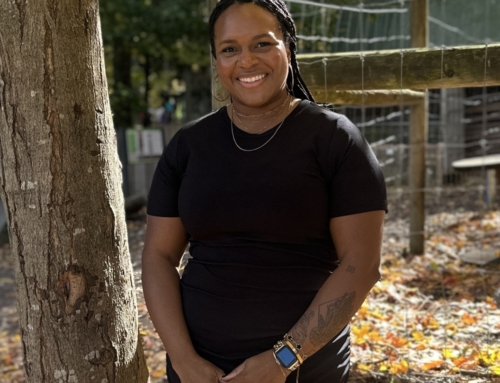
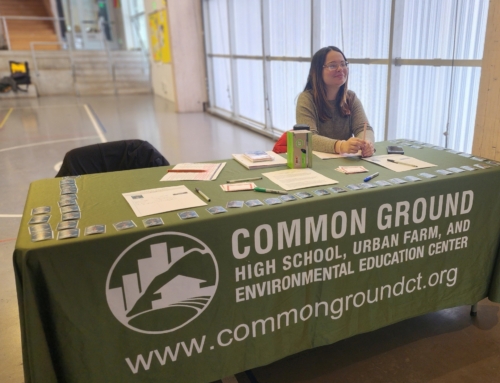
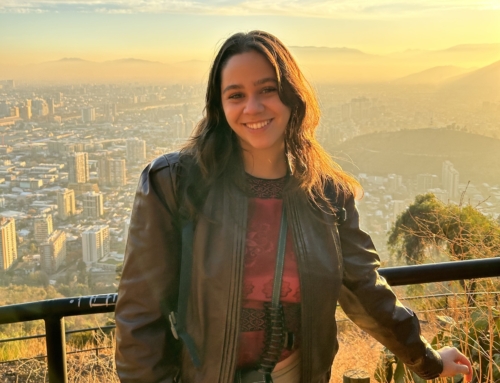
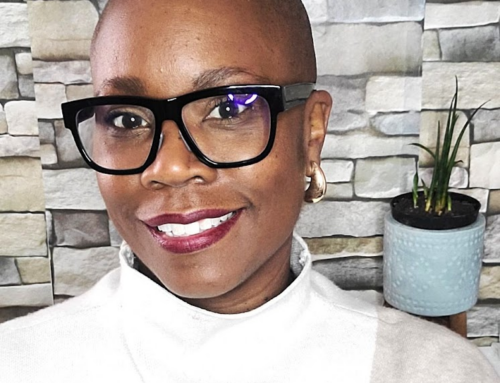
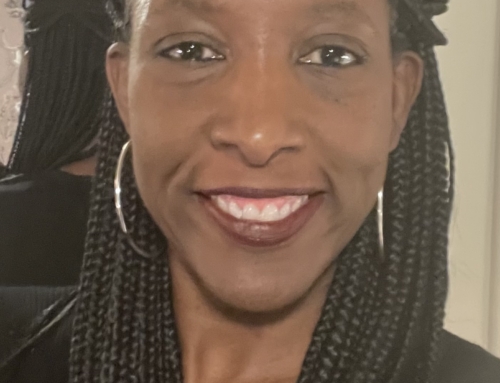
Leave A Comment